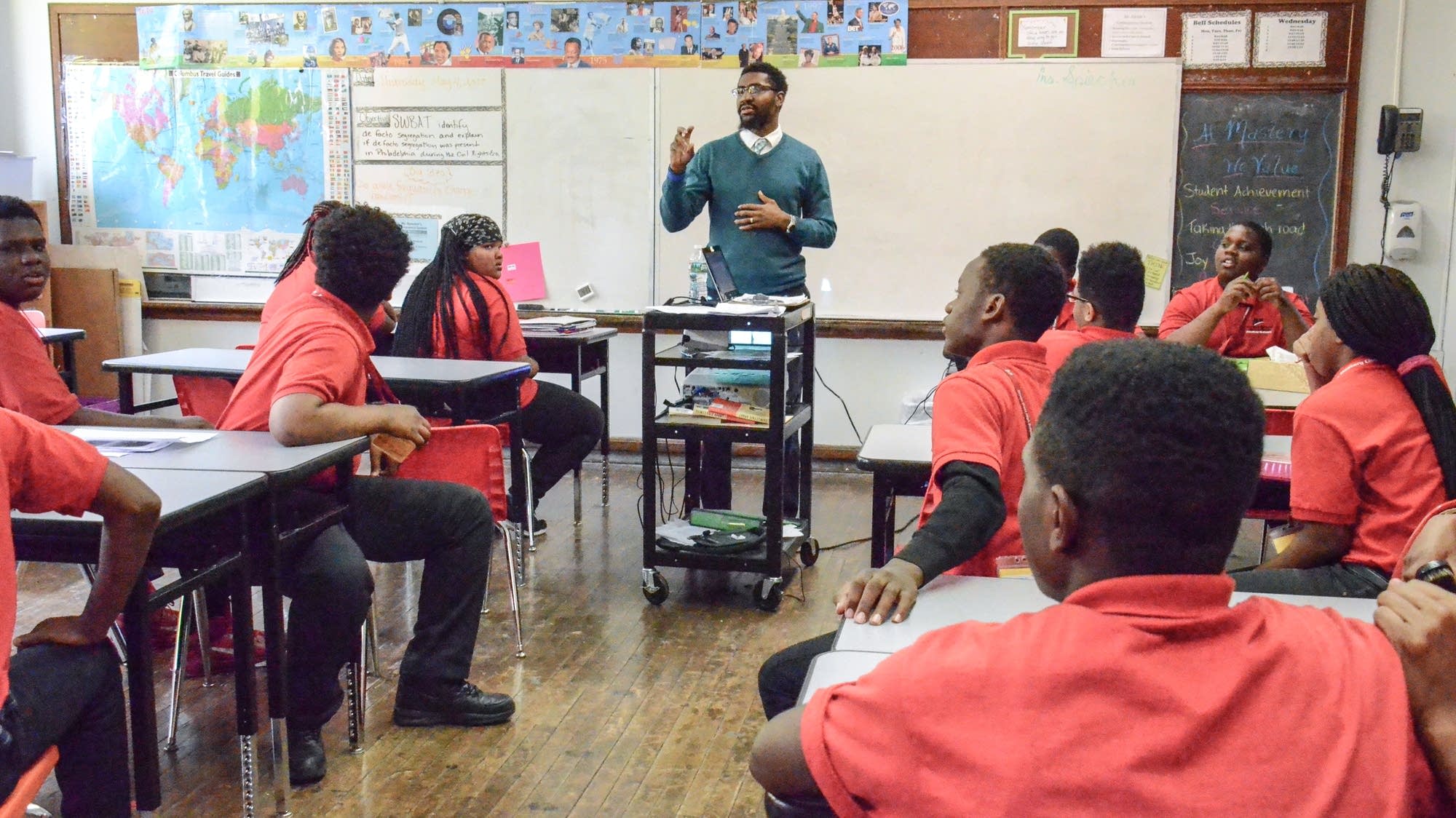Disclaimer: The views and opinions expressed by the author(s) do not represent the official position of Barbados TODAY.
By Wayne Campbell
“A good teacher can inspire hope, ignite the imagination, and instill a love of learning.” – Brad Henry.
Teachers are at the centre of every education system. Yet, the teaching profession is still not properly recognized and supported. The teaching profession is oftentimes characterized by overcrowded classrooms, a lack of professional and sustained development of teachers and poor remuneration. World Teachers’ Day is held annually on October 5 to celebrate all teachers around the globe. The theme this year is “The transformation of education begins with teachers”. The day commemorates the anniversary of the adoption of the 1966 ILO/UNESCO Recommendation concerning the Status of Teachers, which sets benchmarks regarding the rights and responsibilities of teachers, and standards for their initial preparation and further education, recruitment, employment, and teaching and learning conditions. The day is set aside to recognize the teaching profession and the dedication of our hardworking teachers. According to United Nations Educational, Scientific and Cultural Organization, (UNESCO), it is a day to celebrate how teachers are transforming education but also to reflect on the support they need to fully deploy their talent and vocation, as well as to rethink the way ahead for the profession globally.
What does it take to transform education?
At the root of developing a transformative education system are vision and commitment; a collective commitment of ideas, resources are needed to bring about the changes which will best serve our students and the country. We must first acknowledge the shortcomings and with a laser sharp focus work assiduously to change such a system. Unquestionably, transforming education requires more teachers; however, increasing the number of teachers alone to work in the same system will be unproductive. UNESCO states sub-Saharan Africa alone requires 15 million teachers to achieve the United Nations Sustainable Development Goal #4, (SDG 4) which addresses quality education and the promotion of lifelong learning opportunities for all by 2030. In transforming education, the global teaching profession must seek to examine increasing the numbers of teachers in addition to ensuring qualified teachers are in and remain in the teaching profession. This of course will be challenging in a global context of supply, demand and the migration of teachers from the South to more lucrative paying jobs in the North. However, 83% of both primary and secondary educators worldwide held the minimum required qualifications, yet in low-income countries, only 70% and 64% did so (UIS-Teacher Task Force, 2021). The transformation of education begins with the improvement of teachers’ working conditions. The current situation in many countries leads to many leaving the profession or changing careers. Additionally, the insufficient opportunities to develop professionally hinder the task of attracting candidates to a profession that they might find unattractive. We need to explore and create more avenues in the teaching profession for promotion. The education system in Jamaica comprises one of the largest institutions. The Ministry of Education and Youth has 7 regional offices each headed by a Regional Director. The sector employs over 25,000 teachers who provide instructional instruction to approximately 580,000 students in over a thousand educational centers. Jamaica provides access to education from pre-primary to the secondary level.
Routeway to Transformation
What do we mean when we speak of transforming Jamaica’s education system?
Transformation of Jamaica’s education system calls for a realignment of the basic structures and principles which underpins the system in order to empower and enrich the lives of the students.
UNESCO states, education systems need to be reoriented to equip learners with the knowledge, values, and abilities to act for the betterment of all people and the planet, as responsible citizens of a global community. Education can only be truly transformative when our students feel appreciated, safe and are included in the learning community as full and active participants. This process begins by preventing and addressing school violence and bullying, gender-based violence, as well as age and gender related discrimination towards learners and educators.
Teachers are expected to transform their teaching, for example, ensuring that the curriculum, pedagogy, learning materials, schools or learning environments are meaningful in the natural, political, economic, and cultural contexts. For education to be of high quality, it must be transformative. There exists an urgent need for more enrichment programmes to be infused in the education system. Undoubtedly, given the state of our island with high levels of crime and violence we must seriously examine how best character education can become part of Jamaica’s education system. We need to revisit our values and attitudes and the education system provides the best conduit for the transmission and transformation of such ideals. The transformation of education begins when teachers actively participate in social dialogue, decision-making processes and policies. Let us use this opportune day such as World Teachers’ Day to envision and reimagine a transformative education system which will benefit all stakeholders. On this World Teachers’ Day let us pause to celebrate our inspirational educators across the globe. Let us invest more in our teachers. Happy World Teachers’ Day.
In the words of Nelson Mandela, education is the most powerful weapon we can use to change the world.
Wayne Campbell is an educator and social commentator with an interest in development policies as they affect culture and or gender issues. waykam@yahoo.com @WayneCamo ©




